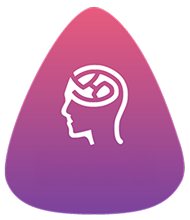Read an academic article that opposes your stance, summarize its strongest point in one sentence.
Pause and ask: “What’s another way to see this?” when reacting strongly to research challenges.
Choose one study habit to change today, switch the order, method, or location you normally use.
Read an article outside your discipline, note one idea you could apply to your own research.
Challenge your default choice in a low-stakes task, try the opposite to stretch flexibility.
Use the phrase “That’s interesting, tell me more” when peers challenge your perspective.
Journal about a time when rigid thinking limited your research, what might openness have created instead?
Reflect on your reaction to syllabus changes, do you resist, explore, or experiment with new approaches?
Describe a time you adapted to a surprise in research, what kind of thinking helped you shift perspective?
Write about an academic belief you’ve outgrown, what influenced you to finally change your mind?
List three recent study challenges, did you see multiple angles or get stuck in only one approach?
Explore how curiosity shows up in your studies, when do you ask “what if,” and when do you shut it down?
Present a new idea in class that challenges the usual perspective, invite debate, not agreement.
Switch roles in a group task, see it from another student’s perspective and adjust your approach.
Do something this week that stretches you intellectually, then reflect on what you learned.
Pick a concept you know well and explain it as if you were teaching a beginner.
Offer a “yes, and” response in disagreement, build on what’s said even if you differ.
Ask your peers to challenge your argument, respond with curiosity and clarifying questions.
Ask a peer to point out when you seem rigid in thinking, what behaviors signal that to them?
Share an example where your mindset shifted recently, ask a peer how theirs has changed too.
Ask a peer for feedback on your flexibility in group brainstorming, do you invite or shut down ideas?
Start a conversation with someone outside your field, ask how they approach change in their studies.
Share how you processed a complex study decision, ask where you could have been more open.
Create a “blind spot swap” with a peer, exchange one area you each tend to overlook.
Reframe “That’s not my method” as “What if I tried it once, just to learn and adapt?”
Instead of “That won’t work,” ask: “Under what conditions could this succeed in my research?”
Recast uncertainty in research as optionality, more paths, not just more problems.
When stuck, ask: “What if the opposite were true?”, see what new study ideas emerge.
See conflicting theories as input, not threat, what conditions might they account for?
Reframe mistakes as data points, adjust my academic approach and test again.
Notice when you reject a new idea too quickly, what bias or emotion may drive that reaction?
Track your reaction when a professor challenges you, do you feel curious, threatened, or numb?
Observe how you respond to unexpected changes, freeze, pivot, or adapt first?
Watch someone handle syllabus changes, what thoughts guide their flexibility?
Observe classes where creativity thrives, what mindset traits stand out there?
Track language in uncertainty, do you ask “what if,” or say “this won’t work”?


 Give Feedback
Give Feedback
